This article was co-authored by Scott Nelson, JD. Scott Nelson is a Police Sergeant with the Mountain View Police Department in California. He is also a practicing attorney for Goyette & Associates, Inc. where he represents public employees with a myriad of labor issues throughout the state. He has over 15 years of experience in law enforcement and specializes in digital forensics. Scott has received extensive training through the National Computer Forensics Institute and holds forensic certifications from Cellbrite, Blackbag, Axiom Forensics, and others. He earned a Master of Business Administration from the California State University Stanislaus and a Juris Doctorate from the Laurence Drivon School of Law.
There are 7 references cited in this article, which can be found at the bottom of the page.
This article has been viewed 160,176 times.
As a forensic scientist, you'll use unbiased scientific observations and facts to give evidence in courts of law.[1] However, forensics has many other career pathways to offer you. Getting a job in forensics requires years of study and training, but is very rewarding if you're interested in science or the law.
Steps
Choosing Your Specialty
-
1Learn about the different jobs within forensics. There are many different career opportunities within forensics. Some lean more towards social sciences while many positions are heavily oriented towards biology and chemistry. The following jobs are all sub-fields within forensics:
- laboratory analyst
- forensic odontologist (dentist)
- forensic engineer
- crime scene investigator
- forensic psychologist.
- psychological profiler
- forensic accountant.
- forensic IT specialist
- forensic pathologist (medical examiner)
-
2Be a forensic pathologist, or medical examiner. To become a medical examiner, you will have to attend medical school and receive your MD degree. While this takes a long time, your salary is likely to be higher than in other sub-fields of forensics. Your job duties include inspecting deceased bodies and determining the cause of death. You should have a strong stomach for this job. Work hours are also less predictable because you could be called in at a moment's notice.[2]
- Pursuing an undergraduate degree in biology or chemistry is a smart choice. These degrees will help you gain entrance into medical school.[3]
- Upon completing medical school, choose a residency where you can focus on forensics.[4]
- See Become a Medical Examiner for additional details.
Advertisement -
3Become a crime laboratory analyst. For this job, you work in a laboratory environment and conduct analyses of samples from the crime scene or deceased person. Your hours are more predictable and your pay is decent. You will repeat many of the same tasks.
-
4
-
5Focus on forensic engineering. Specialize in electrical, civil, traffic, materials, or mechanical engineering. Your hours and pay will be good and you will investigate cases involving traffic accidents, fires, and unlawful injury. Your work will be similar to that of a crime scene examiner except that you will be focusing on the non-biological aspects of a case. [11]
-
6Become a forensic psychologist. Your primary job will be working with convicted people in therapeutic settings. You will have personal appointments with offenders and assess whether the person is likely to commit another crime or whether they are at risk for self-harm. You might design treatment programs for offenders or be a witness in courtrooms. You are likely to work a normal forty hour work and your pay is decent.[12]
- Major first in psychology with a minor in criminology.[13]
- Pursue a master's degree in forensic psychology.[14]
- See Become a Forensic Psychologist for more tips.
Preparing to Study
-
1Have an earnest interest in science. Do you desire to learn and examine biology, behavioral sciences, chemistry, and mathematics?[15] You should take top level biology, physics, math and chemistry courses while in high school. This will help you gain entry into a good university with a forensic science program.
-
2Apply for a bachelor's degree in science or social science at a university or college. A future employer might judge you by the strength of the program and the prominence of the school. You should try to get into an undergraduate degree program in forensic science or in biology or chemistry if pursuing careers in medical examining or laboratory work. A degree in psychology is necessary to become a forensic psychologist.
- Not all programs claiming to offer forensic science teach the necessary skills that one needs to be a forensic scientist. Be sure to check the details of the program before enrolling.[16]
- The Chartered Society of Forensic Sciences offers lists of accredited British universities and courses for forensic science: http://www.forensic-science-society.org.uk/Membership.
- The Forensic Science Education Programs Accreditation Commission provides a list of accredited forensic science programs at U.S. universities: http://www.fepac-edu.org/accredited-universities
- If you cannot get a degree specifically in forensic science, you also can procure forensic scientist jobs with degrees in biology, molecular biology, chemistry, forensic chemistry, or analytical chemistry.[17]
- Some employers prefer hiring people with undergraduate degrees in “pure sciences” like biology or chemistry. Ideally, candidates have learned the necessary research skills in those courses and then follow up with a master’s degree in forensics.[18]
-
3Supplement your education with a focus in law, police procedure or criminal justice. Consider enrolling at a university where you can minor in one of these subjects or minimally take relevant courses. This will point you towards a career in forensic law enforcement positions, and it will help you to understand the systems in which you will be working.
Gaining an Education
-
1Complete your undergraduate program. After you have chosen your desired focus and program, study well and take the time to learn everything you can about the field. Seek a mentor in your school’s science department. Meet with the person regularly and if possible, design a research project related to forensic science with him or her.
- If you would like to seek employment in your field without a master's degree, choose your undergraduate courses very carefully. For example, consider taking criminology courses, graphics course, such as 3D modeling, organ chemistry or toxicology, and human physiology.
- You can also do forensic anthropological or archaeological fieldwork, which will prove you have experience in the field.
-
2Do an internship. Consider doing an internship during your first summer break or an early semester in your educational career. This will dispel any romantic notions you might have about the job and help you obtain real-world skills. Trying out the career before you spend a lot of time and money on courses is a good idea. Use your networking contacts to find internships as well as applying online and through local law enforcement agencies.
-
3Procure a graduate degree with a focus on forensic science. While not necessary for all forensics careers, getting a graduate degree might be essential if your undergraduate degree did not acquaint you with the wide array of subjects you need to study, or if your chosen specialty requires it. For careers in the hard sciences, subjects include human anatomy, organ chemistry, toxicology, evidence analysis, and criminal justice. Obtaining a master’s degree or PhD can increase your employment chances too.[19]
Developing Professionally
-
1Develop public speaking, technical writing, and organizational skills. As you will be called to speak in a public courtroom, it is important that you are a self-assured communicator. You can improve your speaking skills through classes and by joining a Toastmasters club. You will need to write technical reports and organize databases and samples. If your writing is weak, hire a writing tutor.
-
2Seek a professional certification. In order to work for some agencies, you might need a professional certification from an entity like the American Academy of Forensic Scientists, the Forensic Science Society, the Royal Society of Chemistry, or the American Board of Criminalistics. Certifications often require a test, a membership fee, and continuing educational credits. Being certified can distinguish you in a pool of potential employees.
-
3Attend a forensics conference. By visiting a conference, you will learn what is new in the field regarding research and professional practices. Conferences are also a great place to network and meet contacts who could help you find your first job. The forensics wiki lists upcoming conferences: https://forensicswiki.xyz/wiki/index.php?title=Upcoming_events.
Receiving Your First Job
-
1Perfect your resume and cover letters. Apply for jobs in the field in which you have decided to specialize. Use LinkedIn, your university department’s alumni networks, and any contacts you might have to search for your first job. Research the company to which you are applying. Change your resume and cover letter to reflect the experience you have that relates to the job qualifications. Be specific and connect the dots.
- For example, if you are applying to a lab position, emphasize your previous lab work. Mention any research projects you completed related to forensics. If you have a prominent advisor from forensics, mention that you were in his or her lab.
- Because forensics has become a very competitive field, your C.V. must stand out. Work to prove that you already are a scientist and thus are not a complete rookie.[20]
- Check Make a Resume for specific tips.
- See Get a Job for thorough tips on how to search for jobs, do informational interviews, and land your first job.
-
2Practice interviewing for a job. Pretend you are speaking as an expert witness in court. Employers are looking for forensics employees that will stick to the evidence in the face of unscientific testimony. They desire employees with a meticulous appreciation for the facts of a case.
- Practice with family or friends.
- Ask for informational interviews with employed forensic scientists. Use the interview as an information-gathering session. Also, ask if they would mind asking you typical interview questions and giving you feedback.
-
3Get a job offer. Be sure to clarify what your duties are before signing your contract. Also, if it is appropriate, negotiate your salary and benefits so that you are satisfied. Give 100% to your job and learn as much as you can from your more senior colleagues.
- Read Negotiate a Job Offer for tips on mastering negotiation.
-
4Continue to supplement your career with continuing education courses. Even though you now have a job, continue to stay current on trends in the field. Forensics has changed innumerably throughout the history of police investigation. Make sure you are on the cutting edge of the field in order to be eligible for promotions or better opportunities.
Expert Q&A
-
QuestionIs it hard to get a job in forensics?
 Scott Nelson, JDScott Nelson is a Police Sergeant with the Mountain View Police Department in California. He is also a practicing attorney for Goyette & Associates, Inc. where he represents public employees with a myriad of labor issues throughout the state. He has over 15 years of experience in law enforcement and specializes in digital forensics. Scott has received extensive training through the National Computer Forensics Institute and holds forensic certifications from Cellbrite, Blackbag, Axiom Forensics, and others. He earned a Master of Business Administration from the California State University Stanislaus and a Juris Doctorate from the Laurence Drivon School of Law.
Scott Nelson, JDScott Nelson is a Police Sergeant with the Mountain View Police Department in California. He is also a practicing attorney for Goyette & Associates, Inc. where he represents public employees with a myriad of labor issues throughout the state. He has over 15 years of experience in law enforcement and specializes in digital forensics. Scott has received extensive training through the National Computer Forensics Institute and holds forensic certifications from Cellbrite, Blackbag, Axiom Forensics, and others. He earned a Master of Business Administration from the California State University Stanislaus and a Juris Doctorate from the Laurence Drivon School of Law.
Digital Forensic Specialist An internship can help you get your foot in the door. It can also be a great way to learn hands-on about the different technologies used in forensics.
An internship can help you get your foot in the door. It can also be a great way to learn hands-on about the different technologies used in forensics.
Things You'll Need
- Bachelor of Science degree
- Internship (optional)
- Graduate degree in forensic science
- Professional certification
- Public-speaking abilities
- Technical writing skills
- Organizational skills
- Resume
- Cover letter
- Job applications
References
- ↑ http://www.prospects.ac.uk/forensic_scientist_job_description.htm
- ↑ http://www.utsa.edu/careercenter/pdfs/Forensic%20Science/career_advice_forensic_science.pdf
- ↑ http://www.utsa.edu/careercenter/pdfs/Forensic%20Science/career_advice_forensic_science.pdf
- ↑ http://www.utsa.edu/careercenter/pdfs/Forensic%20Science/career_advice_forensic_science.pdf
- ↑ http://www.utsa.edu/careercenter/pdfs/Forensic%20Science/career_advice_forensic_science.pdf
- ↑ http://www.utsa.edu/careercenter/pdfs/Forensic%20Science/career_advice_forensic_science.pdf
- ↑ http://study.com/articles/Crime_Scene_Analyst_Job_Description_Duties_and_Requirements.html
- ↑ http://www.utsa.edu/careercenter/pdfs/Forensic%20Science/career_advice_forensic_science.pdf
- ↑ http://www.utsa.edu/careercenter/pdfs/Forensic%20Science/career_advice_forensic_science.pdf
- ↑ http://study.com/articles/Crime_Scene_Analyst_Job_Description_Duties_and_Requirements.html
- ↑ http://www.utsa.edu/careercenter/pdfs/Forensic%20Science/career_advice_forensic_science.pdf
- ↑ http://www.prospects.ac.uk/forensic_psychologist.htm
- ↑ http://www.utsa.edu/careercenter/pdfs/Forensic%20Science/career_advice_forensic_science.pdf
- ↑ http://www.prospects.ac.uk/forensic_psychologist.htm
- ↑ http://www.bls.gov/ooh/life-physical-and-social-science/forensic-science-technicians.htm#tab-4
- ↑ http://www.prospects.ac.uk/forensic_scientist_entry_requirements.htm
- ↑ http://www.prospects.ac.uk/forensic_scientist_entry_requirements.htm
- ↑ https://www.newscientist.com/article/mg19426083.800-breaking-into-a-career-in-forensics/
- ↑ http://www.prospects.ac.uk/forensic_scientist_entry_requirements.htm
- ↑ https://www.newscientist.com/article/mg19426083.800-breaking-into-a-career-in-forensics/
About This Article
To get a career in forensics, make sure you take the right subjects in high school, such as biology, physics, math, and chemistry. Combine this by researching the different jobs in forensics so you know your options, such as a forensic scientist or psychologist. After high school, make plans to study science at college, and be sure to check the program you choose covers the skills you’ll need in forensics, like scientific research skills or medical training. For tips on finding a graduate degree, or developing professionally in your career, keep reading!




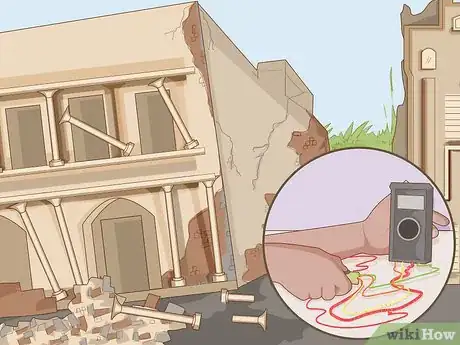


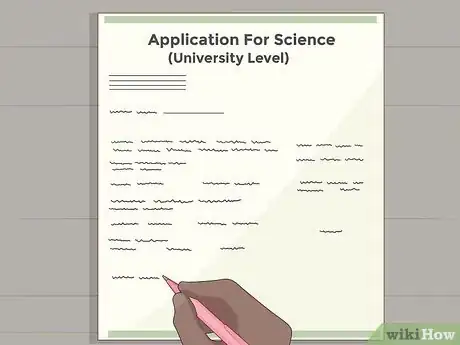
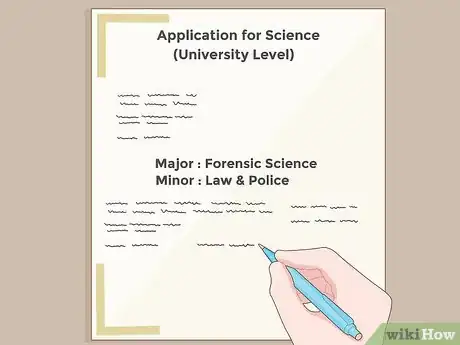




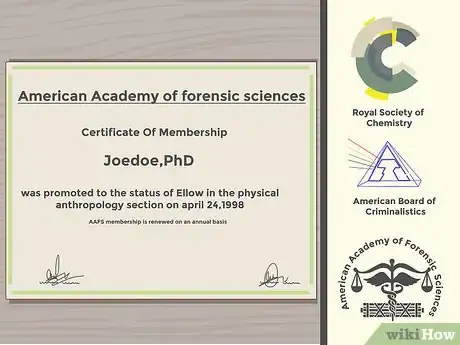
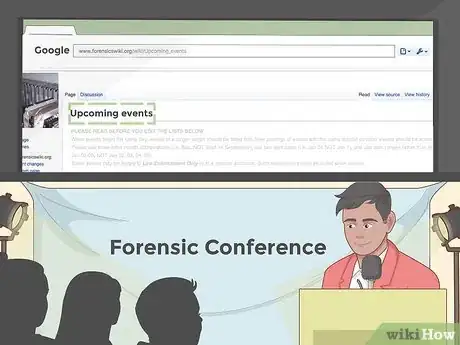
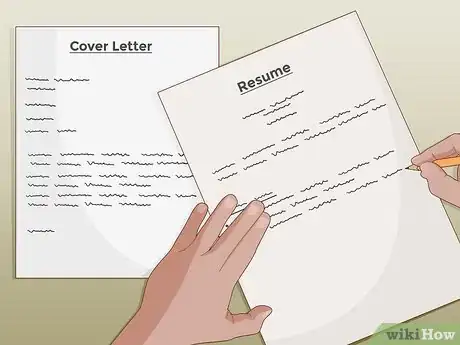






-Step-9.webp)






















-Step-9.webp)


































